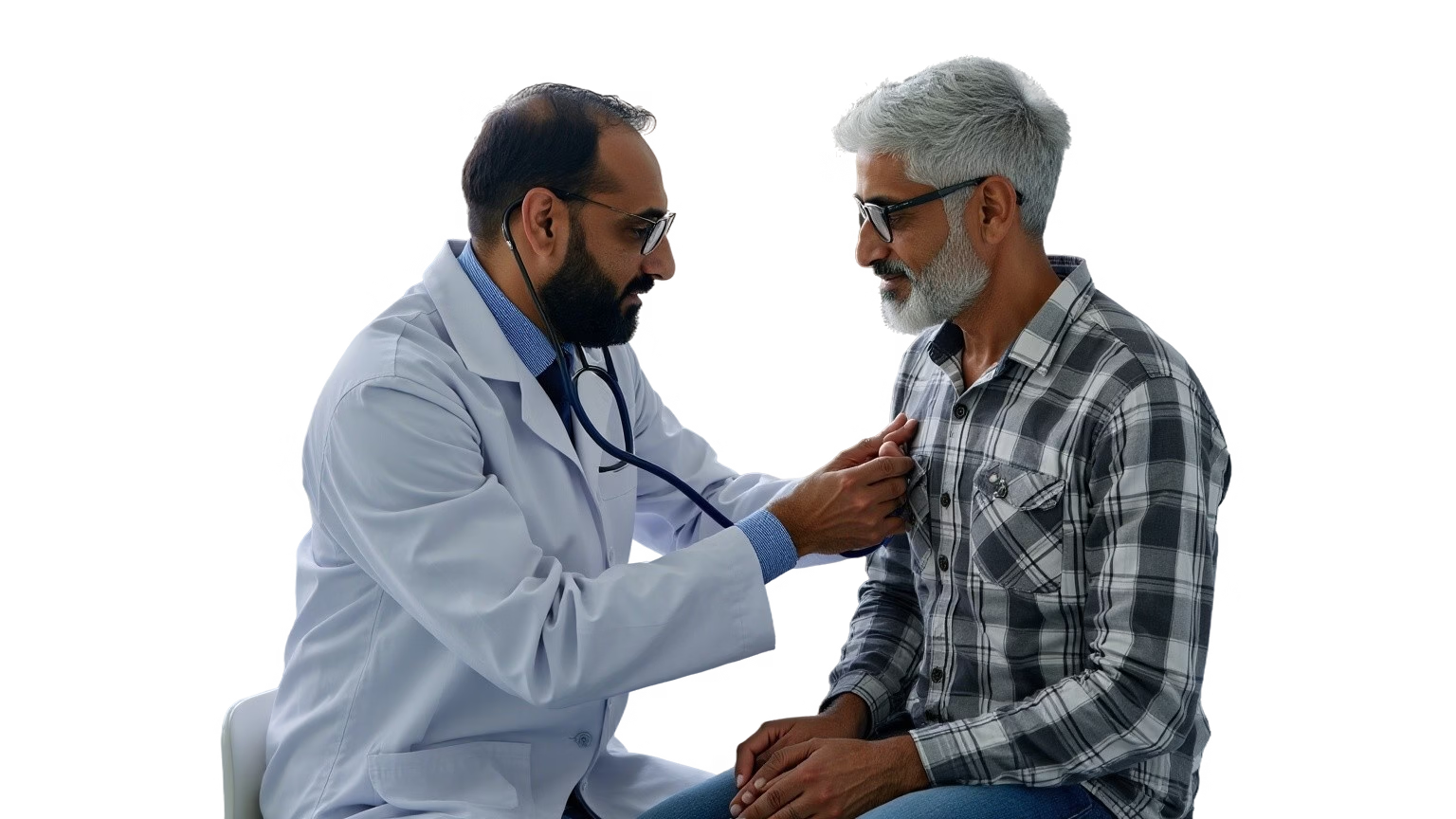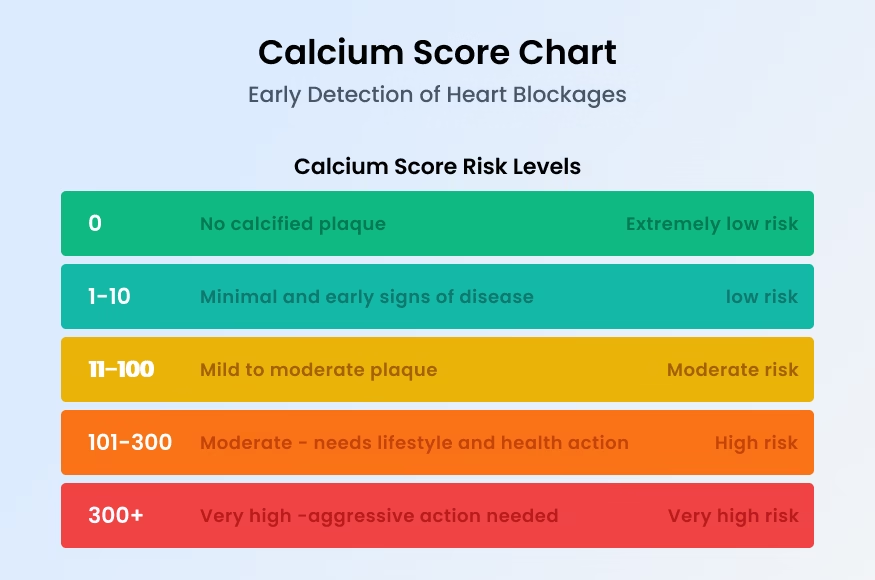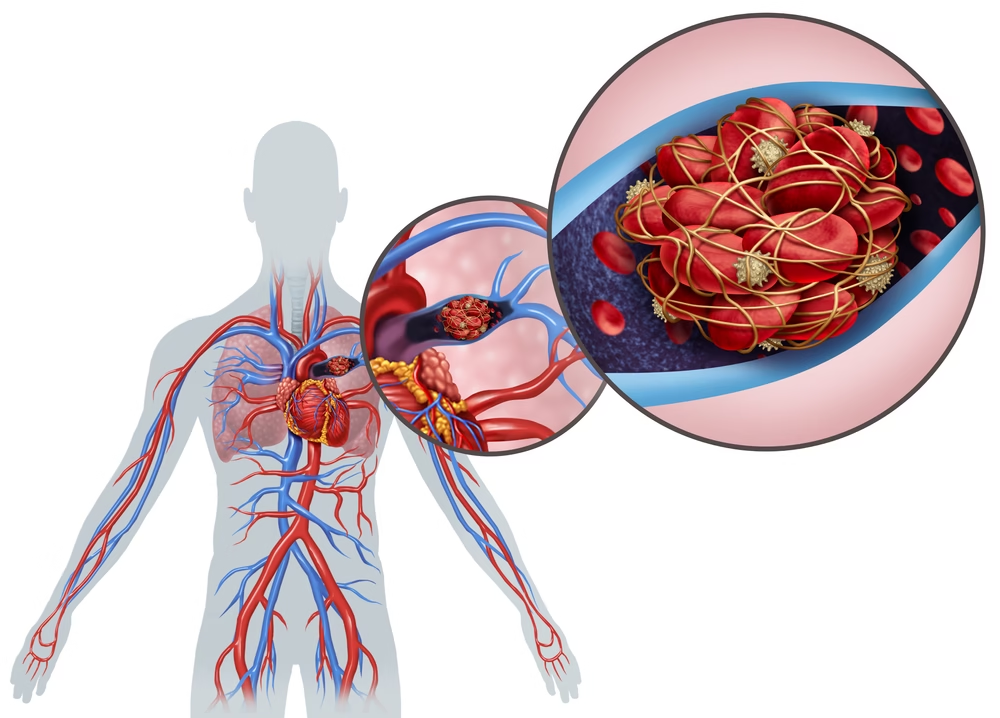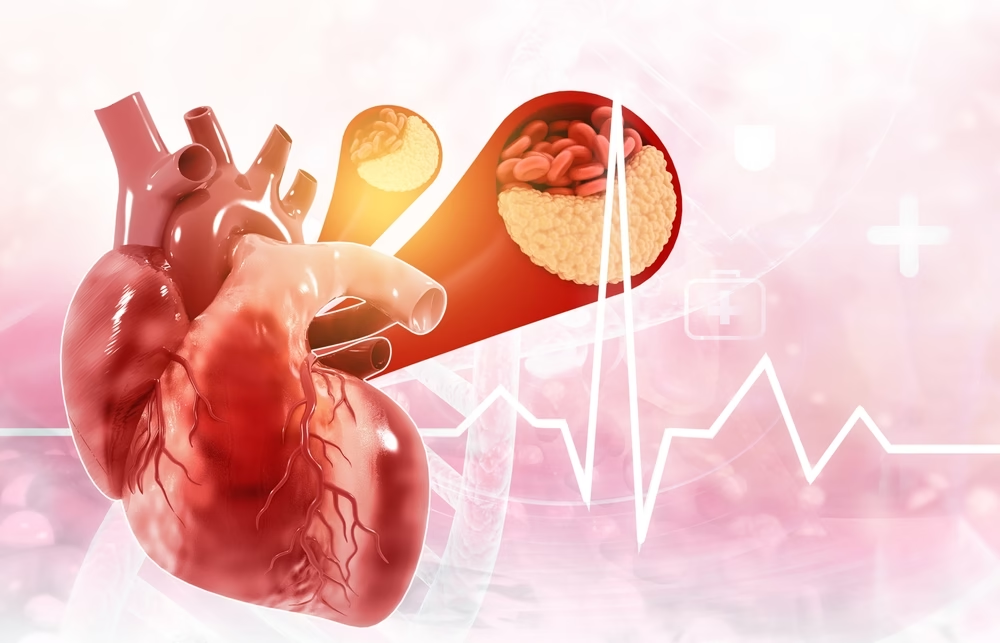Heart failure v/s Heart attack
Did you know that heart failure and heart attack are not the same ? Know the difference below in detail.

What is a heart attack?
A heart attack (medical name: myocardial infarction) happens when the blood flow to a part of the heart is completely blocked. This blockage usually occurs in the coronary arteries (the blood vessels that supply the heart). Because of this blockage, the heart muscle does not get enough oxygen and blood. If the blockage lasts too long, that part of the heart muscle gets damaged or can even die.
Severity
- Small area (5–10%) - mild heart attack, most people recover.
- Large area (30–40% or more) - major heart attack, can be very dangerous or even life-threatening without urgent treatment.
Common symptoms
Note: Not everyone has the same symptoms. Some people, especially women and diabetics, may have silent or mild heart attacks with unusual symptoms like indigestion, fatigue, or back pain.
What to do if you suspect a heart attack
- Call emergency services immediately a heart attack is a medical emergency.
- Chew aspirin if recommended by emergency services and if not allergic (helps slow clotting).
- Stay calm, rest; do not drive yourself to hospital if an ambulance is available.
What is Heart Failure?
Heart failure is a chronic condition in which the heart is unable to pump blood efficiently to meet the body’s needs. It does not mean the heart has stopped working, but rather that it is weaker than normal. People diagnosed with heart failure often experience fatigue, breathlessness, swelling in the legs, and difficulty with daily activities.
Modern heart failure treatment includes lifestyle modifications, medicines for the heart, advanced therapies, and, in some cases, heart failure medical procedures such as EECP or device implantation.
Congestive Heart Failure (CHF)
Congestive heart failure (CHF) is a more specific type of right heart failure where fluid builds up (congestion) in the lungs, liver, abdomen, and legs due to the heart’s reduced pumping capacity.
- Shortness of breath (especially when lying flat or at night)
- Swelling in the ankles, legs, or abdomen
- Sudden weight gain due to fluid retention
- Persistent cough or wheezing
- Fatigue and weakness
If untreated, end-stage congestive heart failure can severely impact quality of life. That’s why CHF management through medicines, lifestyle changes, and therapies like EECP is crucial.

Heart Failure vs. Heart Attack - Key Differences
| Aspect | Heart Failure (incl. CHF) | Heart Attack (Myocardial Infarction) |
|---|---|---|
| Definition | A chronic condition where the heart cannot pump blood effectively | A sudden blockage in a coronary artery causing damage to heart muscle |
| Causes | High blood pressure, coronary artery disease, valve disease, diabetes, lifestyle factors | Plaque rupture, blood clot, or severe narrowing of coronary arteries |
| Onset | Gradual - months or years | Sudden - medical emergency |
| Symptoms | Fatigue, swelling, shortness of breath, fluid retention | Chest pain/pressure, sweating, nausea, shortness of breath |
| Treatment | Ongoing medicines, lifestyle modification, specialist care, EECP or device therapy in selected patients | Emergency angioplasty, stent, bypass surgery, clot-dissolving medicines; later cardiac rehab |
| Long-term care | Requires regular CHF management and specialist follow-up | After recovery: cardiac rehabilitation and risk-factor control to prevent recurrence |
Causes of Heart Failure
- Uncontrolled high blood pressure
- Coronary artery disease and previous heart attacks
- Heart valve disease
- Diabetes and obesity
- Unhealthy lifestyle: smoking, alcohol, high-fat diet
Early Signs of Heart Failure You Shouldn't Ignore
- Shortness of breath on mild exertion
- Swelling in the legs and ankles
- Persistent fatigue
- Irregular heartbeat or palpitations
- Sudden weight gain (fluid retention)
Recognising early signs and consulting a heart failure specialist can prevent progression to chronic or end-stage heart failure.
Patients Speaks
SAAOL has transformed thousands of lives by ensuring that patients go back home with a stronger and healthier heartbeat and enjoy the happy rhythm of life. Here’s what they have to say about their SAAOL experience.

I started experiencing heaviness in my chest during my morning walks, and soon, I could barely walk beyond 1-2 km. I knew something was wrong with my heart. A relative told me about SAAOL Heart Care Delhi, and I was relieved to find a center near my home in Janakpuri. After 40 days of EECP therapy, I feel a remarkable difference. My energy levels are back, and I can walk comfortably again. The heart-friendly diet suggested by SAAOL’s doctors has truly helped me, and I am committed to following this healthier lifestyle. I am grateful to SAAOL for giving me a new lease on life!

I was struggling with chronic chest pain and breathlessness, completely dependent on medicines, with no clear solution in sight. But then I found SAAOL. In just 40 days of EECP treatment and SAAOL Detox Therapy, my life changed completely. My heart pumping improved from 25% to 45%, and I no longer experience any chest pain or breathlessness. Today, I can walk 3KM effortlessly—something I never thought would be possible again. The best part is no surgery, no stents, just a completely natural recovery. SAAOL gave me a second chance at life, and I am truly grateful for their care and expertise.

Before coming to SAAOL, no doctor clearly explained my heart condition to me. I was only told that my heart’s pumping capacity was just 20% and was immediately advised to get an angiography. Then, a friend recommended SAAOL, where I met Dr. Sachin. He explained everything in detail, giving me clarity and confidence." "My wife and I were amazed by the positivity at SAAOL. She was extremely anxious when we arrived, but after speaking to the doctor, we felt reassured and motivated. The care, guidance, and non-invasive approach truly worked. Today, I am healthy, and my results have improved significantly. We are deeply grateful to Dr. Sachin and the entire SAAOL team for their support in this journey.

I am just sharing my experience after 4 years of regular consultation from SAAOL HEARTCARE Chattarpur centre. I am totally satisfied.
95% and 80% blockage were in few major places from many blockages. Three big hospital of Delhi NCR told for bypass surgery or else immediate angioplasty for 2 stent placement.
My father (current age 75 year) core issue get resolved post treatment from Dr. Bimal Sir. It was a only one time busy schedule for 40 days... It's really worth of putting time on treatment. Thanks a lot Dr. Bimal Sir.

My blockage was 80-90% and heart pumping was about 24 and my main complaints were discomfort, unable to walk, major breathing issues. That is when I came across SAAOL and Dr. Bimal Chhajer. I watched his lectures and learned that Heart blockages can be reversed without surgery and with a few lifestyle changes. I started my treatment at SAAOL and within a month’s time I feel much healthier and are able to perform all day-to-day activities with ease. I am able to walk for an hour daily, I don’t feel fatigue or any kind of discomfort now. I am very grateful to Dr. Chhajer for his guidance and for providing heart patients with an alternate that is cost effective also.

I had a minor heart attack in 1989 and doctors told me that getting bypass surgery is my only option but I refused. I met Dr. Bimal Chhajer at a medical residential camp in Faridabad and at that time I was unable to do day-to-day work due to excessive pain in my body and I was taking atleast 6-7 Sorbitrate tablets per day. I immediately started the EECP treatment and Detox Therapy along with diet and lifestyle changes including yoga, and meditation, and followed a zero oil diet plan for 40 days. For 2 years I kept on following these lifestyle changes and now after 25 years I am completely fine and I am also able to do normal day-to-day activities very easily. All this was made possible SAAOL without any kind of bypass surgery or angioplasty.

Year ago my husband was suffering from angina and discomfort in walking and doing sedentary activities. We heard about SAAOL through YouTube. We consulted Dr.Chhajer and were told that my husband’s Heart health could get better without surgery and with a few lifestyle changes. Post completion of the treatment his test reports only showed 50% blockage. He takes his regular medication and follows the SAAOL recommended Lifestyle like Zero Oil Cooking, Yoga, etc. His health is constantly improving. We are very grateful to SAAOL and Dr.Chhajer for his noble service for the society.

About 6-7 months ago I suffered from minor angina due to which doctors told me to go for a stent. After 3 months, I had a Heart stroke which got me really worried about my health. A friend recommended Dr.Bimal’s YouTube channel and I got to know about Natural Bypass. . It is a process that treats Heart blockage without any surgery and I started my treatment immediately. I took 35 EECP sessions along with medication and followed the SAAOL Lifestyle. I am so relieved now as my condition has improved tremendously and I am at ease now. I would like to thank Dr.Chhajer for his advise and for healing lakhs of Heart patients the Natural way. I will definitely spread knowledge about this treatment to my near and dear ones.

Kamleshwari Ji
"I can walk beyond 1-2 km again"... I started experiencing heaviness in my chest during my morning walks, and soon, I could barely walk beyond 1-2 km. I knew something was wrong with my heart. A relative told me about SAAOL Heart Care Delhi, and I was relieved to find a center near my home in Janakpuri. After 40 days of EECP therapy, I feel a remarkable difference. My energy levels are back, and I can walk comfortably again. The heart-friendly diet suggested by SAAOL’s doctors has truly helped me, and I am committed to following this healthier lifestyle. I am grateful to SAAOL for giving me a new lease on life.

R.S. Lal
" My heart pumping improved from 25% to 45%"... I was struggling with chronic chest pain and breathlessness, completely dependent on medicines, with no clear solution in sight. But then I found SAAOL. In just 40 days of EECP treatment and SAAOL Detox Therapy, my life changed completely. My heart pumping improved from 25% to 45%, and I no longer experience any chest pain or breathlessness. Today, I can walk 3KM effortlessly—something I never thought would be possible again. The best part is no surgery, no stents, just a completely natural recovery. SAAOL gave me a second chance at life, and I am truly grateful for their care and expertise.

Dinesh Dagar
"SAAOL saved me from Bypass surgery"... Before coming to SAAOL, no doctor clearly explained my heart condition to me. I was only told that my heart’s pumping capacity was just 20% and was immediately advised to get an angiography. Then, a friend recommended SAAOL, where I met Dr. Sachin. He explained everything in detail, giving me clarity and confidence. My wife and I were amazed by the positivity at SAAOL. She was extremely anxious when we arrived, but after speaking to the doctor, we felt reassured and motivated. The care, guidance, and non-invasive approach truly worked. Today, I am healthy, and my results have improved significantly. We are deeply grateful to Dr. Sachin and the entire SAAOL team for their support in this journey.

Pranav Kumar
"My father’s core issue got resolved post treatment from Dr. Bimal Chhajer"... 95% and 80% blockage were in a few major places. Three big hospitals in Delhi NCR advised bypass surgery or immediate angioplasty. My father, aged 75, was treated by Dr. Bimal Sir at SAAOL, and after 40 days of dedicated therapy, his core issue was resolved without surgery. We’re very grateful!

Mrs. Manju Pannwali
"My heart is much healthier within one month"... I had 80–90% blockage and a 24% pumping rate. After starting SAAOL therapy and diet changes, I felt a drastic improvement. I’m now walking daily and have no fatigue or discomfort. Huge thanks to Dr. Bimal!

Mrs. Chameli Khaka
"I am also able to do normal day-to-day activities very easily"... I refused bypass surgery and followed EECP, Detox Therapy, zero-oil diet, and yoga from Dr. Bimal. Within 2 years, I recovered fully. Now, 25 years later, I’m still healthy — no surgery ever needed!

Mrs Pal
"SAAOL changed my husband's life"... Year ago my husband was suffering from angina and discomfort in walking and doing sedentary activities. We heard about SAAOL through YouTube. We consulted Dr.Chhajer and were told that my husband’s Heart health could get better without surgery and with a few lifestyle changes. Post completion of the treatment his test reports only showed 50% blockage. He takes his regular medication and follows the SAAOL recommended Lifestyle like Zero Oil Cooking, Yoga, etc. His health is constantly improving. We are very grateful to SAAOL and Dr.Chhajer for his noble service for the society.

Mr Ashok Gupta
"It is a process that treats Heart blockage without any surgery"... About 6-7 months ago I suffered from minor angina due to which doctors told me to go for a stent. After 3 months, I had a Heart stroke which got me really worried about my health. A friend recommended Dr.Bimal’s YouTube channel and I got to know about Natural Bypass.It is a process that treats Heart blockage without any surgery and I started my treatment immediately. I took 35 EECP sessions along with medication and followed the SAAOL Lifestyle. I am so relieved now as my condition has improved tremendously and I am at ease now. I would like to thank Dr.Chhajer for his advise and for healing lakhs of Heart patients the Natural way. I will definitely spread knowledge about this treatment to my near and dear ones.












